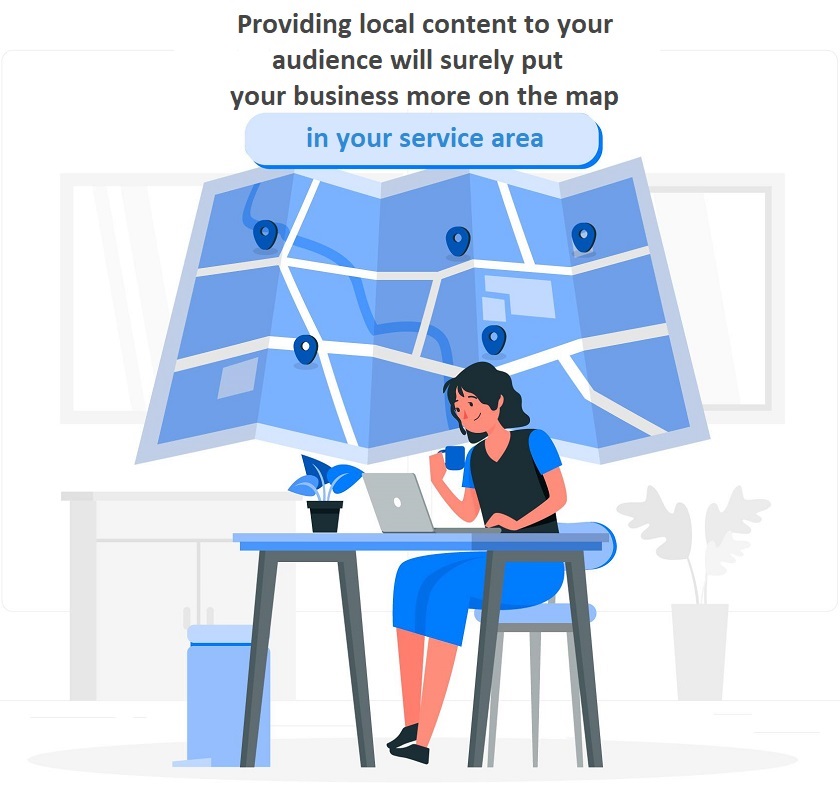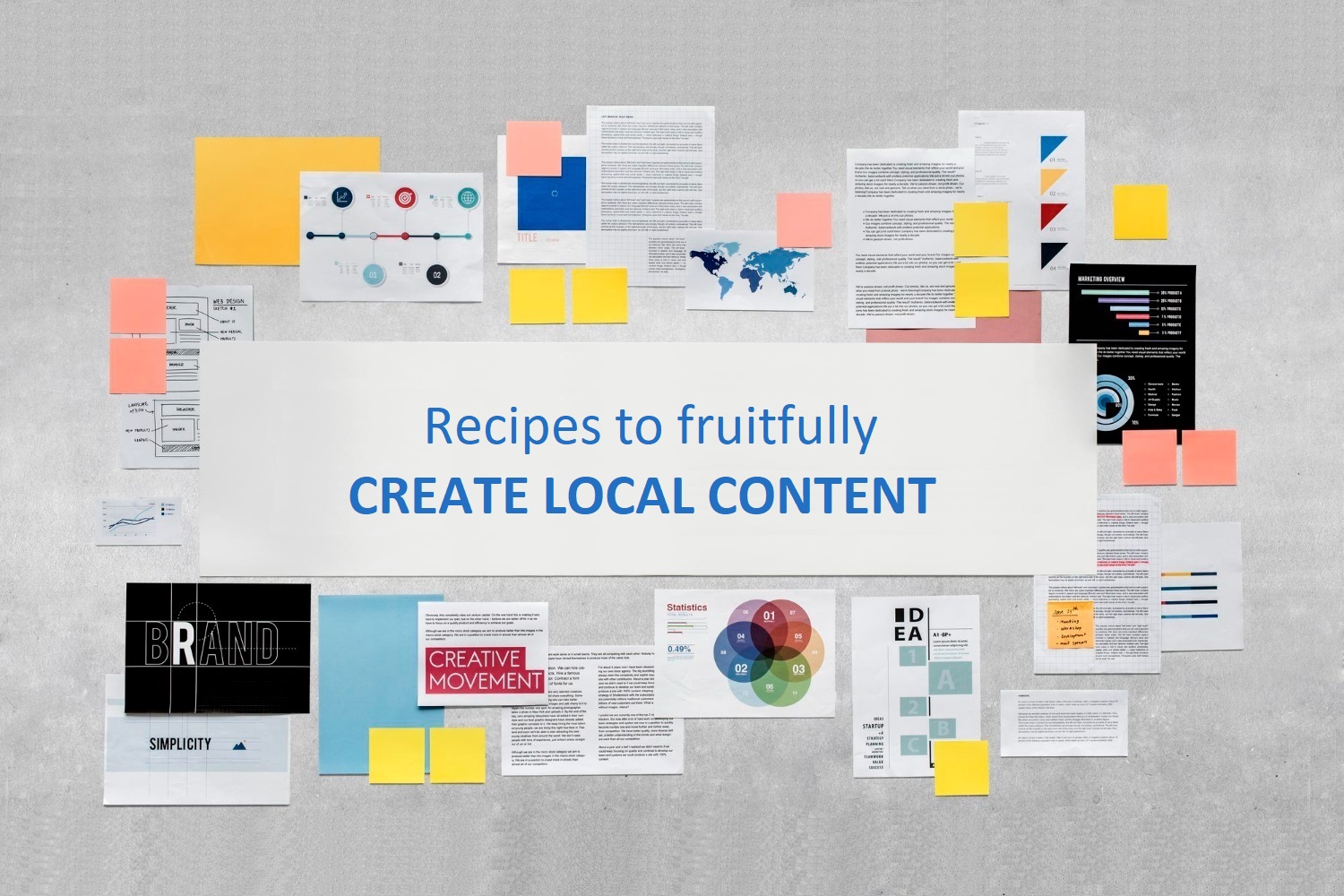Key Information About Successfully Creating Killer Online Local Marketing Content
 Prior to the existence of the powerful online beast that is called the internet, executing local marketing was pretty straightforward just like doing basic arithmetic. You simply paid for a listing in your local Yellow Pages, printed flyers and perhaps ran adverts in local papers. People knew who you were and where you were without the need to go anywhere online.
Prior to the existence of the powerful online beast that is called the internet, executing local marketing was pretty straightforward just like doing basic arithmetic. You simply paid for a listing in your local Yellow Pages, printed flyers and perhaps ran adverts in local papers. People knew who you were and where you were without the need to go anywhere online.
Then web marketing came along and changed everything, including the way content is produced and published. At first, with regards to the search engines, the recommendation was to focus on general keywords. But over the years, Google and other search engines have changed their search algorithms. They are now prioritising local search with quality relevant content above everything else.
What does that mean? In a nutshell, it means that it is not optional creating compelling local content. It’s as vital as oxygen. You have to demonstrate to potential customers that you are part of a community – and that means that you have to think about more than just offering your products or services.

When it comes to effective local content as a marketing angle, I think it’s important to include a summary of how to optimise your website and other content for local search. So, bear in mind these pointers:
- Select local keywords that are highly relevant to your business and have a high search volume. The best local search words entail the name of your area, location or neighbourhood that you serve as well as keywords that are relevant to your business.
- Optimise for local voice search as people can nowadays use a voice command to search the internet, and also optimise for “near me” searches.
- Optimise for mobile search and make sure your website looks great on mobile devices.
- Apply your local keywords to important places on your website, including to title tags, image tags, meta descriptions, anchor text for links, Header (H1) tags and your content.
- Use rich snippets to add essential geographical information to your Google search results.
- Get important local sites to link back to your site. Remember, when it comes to building links, quality is more important than quantity. Focus on local business guides, the Chamber of Commerce, and related local businesses to build and solidify your local SEO credibility.
- Encourage your customers to leave you reviews online and link your website to your review pages. Customer testimonials, which go into a bit more depth than reviews, are also crucial.
Following these tips will put you on the right path for success – but you still have to create the sort of compelling local content that will attract customers to your business.

As long as your site is optimised for local searches, it’s time to focus on creating local content. That means more than simply putting your local keywords into general content. You will need to show casual visitors to your site that (as a business) you are part of a local community.
Here are some pointers to get you started.
- Publish blog posts about local events. Every community, from small rural areas to huge areas or locations, has local events that are a big deal. As a business owner, you should be aware of these events and find a way to write about them that ties back to your business. It will be easy if you are planning to sponsor a booth at your local street fair. But local charity events and holiday celebrations provide the opportunity for you to talk about your community and why you love it.
- Write content regarding local news. For example, did your local football League team make the playoffs? Did a high or secondary school student win a major contest? Is there a new business coming to town? Any of these things could be turned into blog posts and they are especially effective if you can find an organic way to relate the story to your business.
- Put together localised case studies that you can link with your business, and that are relevant to local prospects. You might as a local business serve various neighbourhoods or more than one place in your area. If that is the case, it’s your job to demonstrate that you really care about the places or things happening in your service area. Let’s say your service location is Stratford in London, you can present case studies in association with your business that demonstrate your knowledge of the area and any special circumstances that is unique to the area.
- Find out what your localised audience is interested in and then write about it. Of course, you don’t want to stray too far from your business, but there’s nothing wrong with getting excited about the things your audience cares about. You might write regarding a major change to transportation system that is going to take place in your area and the impact it will have on your local community. You might write about your local council’s newly-launched Community Hub that they have set up within your operating area to bring services closer to the community, improve the quality of services and meet local need.
One great way to get concrete ideas for your local content is to stay plugged in to your community online. You might follow your local Chamber of Commerce on Facebook, subscribe to your local paper, and visit local library to find out what new flyers have been added to the bulletin board of information.

When you are creating local content, one of the most essential things to remember is that every blog post or social media update you write should have a clear intention that is related to your business. By that, what do I mean exactly?
The point I’m making is that you can’t waste time blogging about things if you don’t understand why you are writing about them. Sometimes the intent will be clear – like you own a hardware store and blogging about predicted winter snowfall might help you sell some shovels and snowblowers or at least some Ice Melt.
Although the intention may be a bit harder to pin down at other times. There’s nothing wrong with that but make sure you don’t skip this step. If you are creative enough, you should be able to find a way to tie back to your business any piece of written, local content.
Let’s for instance say you want to blog about a local charity event, but you can’t figure out a way to connect it to your business organically. Rather than giving up, you might consider donating a portion of your sales to the charity or collaborating with other local business owners on a fundraising effort.
Making your local content relevant to your business and to your target audience is really the key here. You should still put out the usual general content, but if you want to easily stand out more from your competitors and grow your business to another level, providing local content to your target market that revolves around your service area is a must.
Hope you find this information useful about creating online local content relating to your service area, and that you can tie in with your business. Furthermore, visit the following link to discover various other excellent types of content marketing that you can successfully apply through the web.


